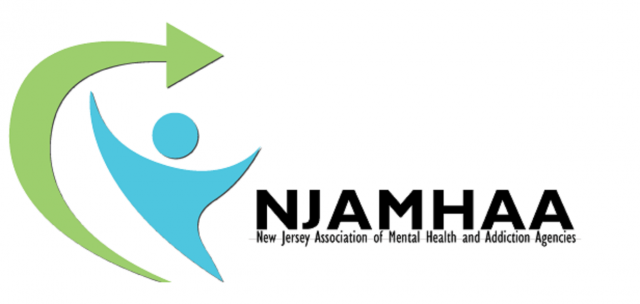February 28, 2023
Statement from Debra L. Wentz, PhD, President and CEO
The New Jersey Association of Mental Health and Addiction Agencies (NJAMHAA) is elated with Governor Phil Murphy's proposed significant investments in the behavioral healthcare workforce. It is clear that Gov. Murphy and his Administration heard and responded to our shared goal of ensuring that every child, youth and adult from all of New Jersey's diverse communities have access to the behavioral health services and supports they need. The Governor's proposed investments will make a significant and meaningful difference in the lives of many New Jerseyans.
Behavioral healthcare providers are essential for achieving Gov. Murphy's vision of "the Next New Jersey where everyone can see their dreams come true". They make it possible for individuals with mental illnesses and substance use disorders to achieve recovery and many other goals. NJAMHAA's Diverse Faces: Partners in Care campaign shares many powerful illustrations of behavioral healthcare providers' impact on the lives of individuals and their families. For example, Elaina, Stephanie and Angelica are progressing toward recovery from depression and substance abuse, becoming stronger for their children, and have secured housing and employment.
The proposed funding that will help many more individuals experience similar successes includes: maintenance of the FY2023 $27 million state funding increase to rates and contracts and an additional increase of $27 million in state funds for FY2024 that will be matched by $10.5 million in federal funding; a one-year, $86.75 million investment for the Department of Human Services "to shore up the workforce that upholds the system of home- and community-based services"; $40 million to increase social service provider payments within the Department of Children and Families, including rates in Child Protection Clinical Services and the Children's System of Care; $36 million to increase the rates paid to service providers for residents with intellectual/developmental disabilities; an additional $31.3 million for wage increases to direct support professionals; and $10.4 million to address wage compression among supervisors.
NJAMHAA also applauds Gov. Murphy's proposed funding for 150 new residential placements for individuals who are able to live in the community and statewide expansion of the Alternative Responses to Reduce Instances of Violence and Escalation (ARRIVE) Together program. Through this program, which the Office of the Attorney General is now piloting, plainclothes law-enforcement officers in unmarked cars are paired with mental healthcare professionals so that situations can be de-escalated and individuals experiencing mental health crises can be connected with treatment, rather than being incarcerated.
NJAMHAA wholeheartedly agrees with Gov. Murphy's statement that these investments, along with others he noted in his address, are "vital ones to ensure equity". We also appreciate Gov. Murphy's acknowledgement that financial struggles have an adverse impact on individuals' mental health, and that a meaningful portion of his proposed budget aims to lessen economic stress on New Jersey residents. These provisions include the absence of new taxes for the third consecutive year ; property tax relief for the middle and working classes and the elderly, as well as a tax freeze for seniors; continued and increased child tax credits; reduced prescription costs for seniors and expanded eligibility for these programs; down-payment assistance for first-time homebuyers; increased assistance to pay college tuition; and the "Some College, No Degree" program for adults who aim to complete their education that they started, in some cases, many years ago.
NJAMHAA urges the State Legislature to vote in favor of Gov. Murphy's proposed FY2024 budget. By providing all the necessary support to children, adults and seniors throughout the state, not only will quality of life be improved, but also the state's bottom line - another important component of the governor's vision - will be strengthened by significantly reducing the use of costly healthcare services, as well as decreasing homelessness and situations that have resulted in incarceration.



